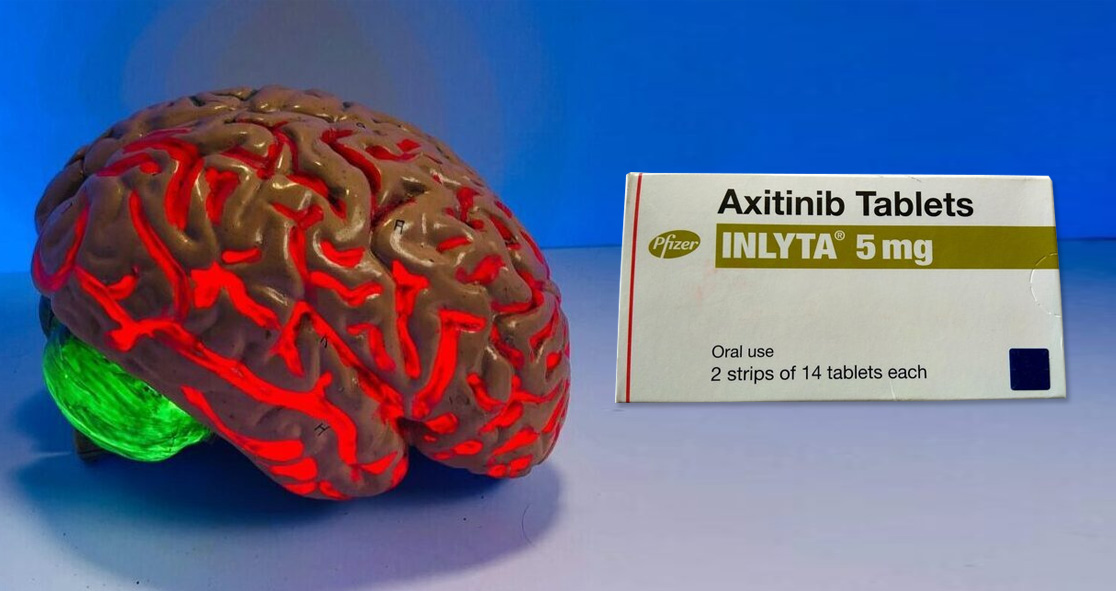Canadian researchers have found that a cancer chemotherapy drug can restore memory and cognitive function in mice with Alzheimer’s disease, according to Science Daily.
The drug, called Axitinib (Inlyta), inhibits the growth of new blood vessels in the brain – one of the features seen in both cancer tumors and Alzheimer’s disease.
In addition, mice with Alzheimer’s disease that received the drug performed remarkably well in tests designed to measure learning and memory.
Senior author Prof. Wilf Jefferies said, “We are really very excited because these findings suggest we can repurpose approved anti-cancer drugs for use as treatments for Alzheimer’s disease. It could shorten the clinical development by years.”
Globally, Alzheimer’s disease affects more than 50 million people. It is a neurological and psychological condition characterized by cognitive decline, memory loss, and dysfunctional changes in the brain.
Typically, previous studies used strategies that target a protein called “tau” or a protein fragment known as “beta-amyloid” in order to treat the condition in animal models, but they failed.
However, the UBC researchers chose a different approach by focusing on stopping angiogenesis. Angiogenesis is the formation of new blood vessels.
Prof. Jefferies explained, “The vast majority of clinical trials have either directly or indirectly targeted beta-amyloid or tau. Other than some controversial recent results, there’s been a paucity of success in these clinical trials. So, a great deal of effort appears to have been directed toward the wrong targets for reversing Alzheimer’s disease.”
The researchers had previously shown that the formation or proliferation of blood vessels compromises the blood-brain barrier (BBB) in patients with Alzheimer’s. And this BBB is believed to protect the brain from infection.
Also, tumors largely rely on the new blood vessels to grow, survive and thrive so the researchers believed that a cancer drug could help stop the process of angiogenesis in Alzheimer’s.
The study’s first author Dr. Chaahat Singh said, “Axitinib, the anti-cancer drug we used, blocks a receptor in the brain called a tyrosine kinase receptor, which is partly responsible for spurring blood vessel formation. It stops abnormal blood vessels from growing, which then prevents many downstream effects.”
After using the drug for just one month, the researchers found that it “dramatically reduced blood vessel growth, restored the blood-brain barrier, and most significantly, helped mice perform better on cognitive tests,” according to Science Daily.
The researchers are optimistic and said if Axitinib works well in humans, repurposing this already approved drug could help treat Alzheimer’s.
Prof. Jefferies said, “Researchers including myself have been disappointed in observing numerous clinical trials for Alzheimer’s disease fail to reach their clinical endpoints. The therapeutic approach we discovered has an opportunity to revise the clinical treatment of Alzheimer’s patients, which I think is absolutely needed at this point for the field to advance.”























